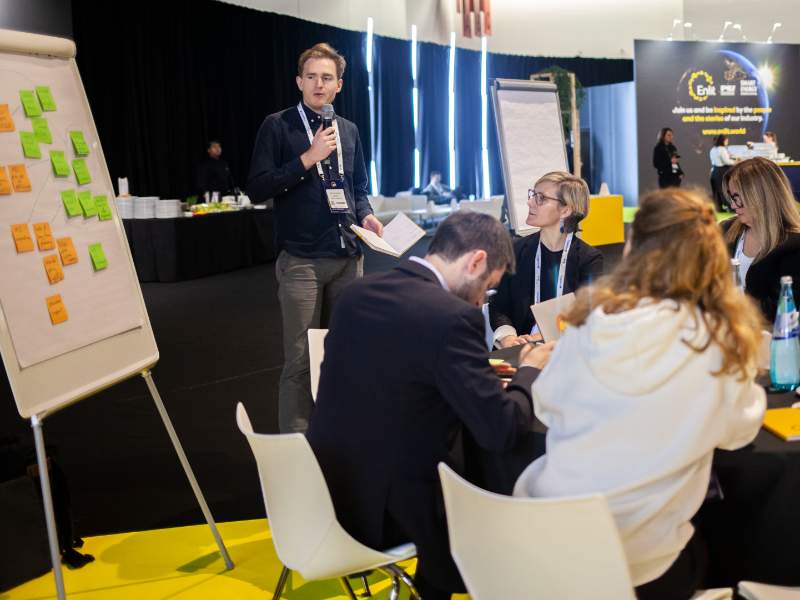
New report spotlights the pain points stalling Europe’s move to a clean energy future
A cross-section of players from the European energy sector have identified six bottlenecks that they believe are stalling the progress of the energy transition.
The industry representatives are united in their belief that the pace of change in the sector is too slow and they urge a series of actions to accelerate the switch to a net-zero future.
Their conclusions are presented in a 40-page report called Breaking Barriers: What’s Holding Back Europe’s Energy Transition? and produced by Enlit Europe.
Enlit director Paddy Young said the report “creates a narrative that links the current state of play of the energy industry with what it must do to meet the Paris Agreement’s 2030 targets”.
He added that “change is not easy for the slow-moving and heavily regulated energy industry”.
“But change must happen, and it must happen at an unprecedented speed. The desired transition is still possible – however, all stakeholders must seize the opportunity and fully embrace the change.”
The six pain points highlighted in the report are high costs – and who is going to pay for them; supply chain challenges; lack of customer engagement; insufficient grid infrastructure; problems over political will and market design; and a lack of truly ‘enabling’ digital technologies.
On costs, the report states that the “system of tomorrow will be paid for by citizens – this fact is not negotiable.
“However, how they pay is an important aspect that must be addressed. How these costs are optimised is another topic for debate.”
And it stresses that there is a cost of doing nothing. “Doing nothing will result in blackouts and further environmental degradation.”
Renewables and hydrogen
The challenges on supply chain pay particular attention to renewables and hydrogen.
The report states that “it could take between eight-to-ten years for the renewables supply chain to scale to the size we need it to”, but it adds that today’s supply chains “are just not designed to support the size and pace of change required”.
“To deploy terawatt-scale renewables generation, battery storage and hydrogen requires their respective supply chains to upscale dramatically.”
It also highlights the ‘people problem’ of the energy transition talent pool.
“The renewables industry will compete for labour, because while it is upsizing renewable generation, the energy industry will simultaneously downsize fossil fuel production”.
“Huge resources will be required to decommission North Sea assets, at the same time as we develop massive new offshore wind farms.”
The report is stark in its assertion that despite the near certainty that hydrogen will scale massively between now and 2050, currently “there is no commercial bank on the planet willing to finance an end-to-end hydrogen project from green power through to ammonia production”.
This, says the study, should be a leading concern to all policymakers. “Without finance, an electrolyser manufacturer cannot invest in assets to expand capacity. It cannot hire and train new staff or build new sites.”
It says finance will never be available until customers are ready to place orders, “and right now, they are not ready to place these orders”.
The report adds that “it is almost a certainty that hydrogen will not achieve the scale needed in the time available by relying on markets alone”.
Chris Peeters, chief executive of Elia Group, was part of the report’s research group and said: “The energy transition is very ambitious and it’s important to understand that it will not happen overnight.”
“Hindrances, challenges, and black swans get in the way and plans must be revised. It’s clear that the acceleration we needed has not happened. But the sooner you start, the more profitable it will be.”